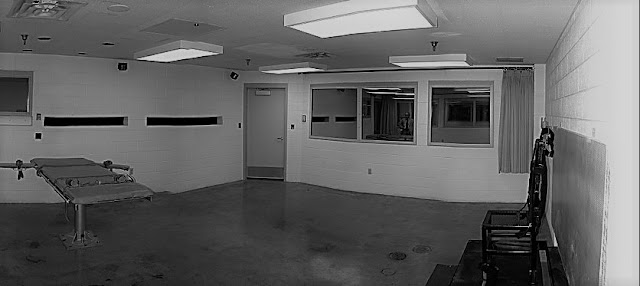By Sklar Laird
The Wednesday order came as part of a new lawsuit about a state secrecy law
COLUMBIA — A federal judge said Wednesday she will not halt the state’s first execution in 13 years over attorneys’ request for more information on the lethal drugs.
Attorneys for Freddie Owens, who is scheduled to die by lethal injection Friday, asked for a delay in his execution after filing a federal lawsuit in Columbia last week arguing condemned inmates need more information about the state’s supply of pentobarbital.
But U.S. District Judge Jacquelyn Austin said in Wednesday’s order the attorneys’ argument was not convincing enough for her to stop Owens’ execution while the latest lawsuit plays out.
The lawsuit centers around a secrecy law legislators expanded in 2023 to protect the identity of drug manufacturers after years of companies refusing to sell drugs to the state to kill people. The law worked. Last September, Corrections Director Bryan Stirling announced the agency had secured enough of the sedative pentobarbital, which is lethal in high doses, to resume executions.
Attorneys for Owens and five other inmates who could be scheduled for execution over the next seven months argued that, even under the secrecy law, inmates are entitled to a certain amount of information about the drugs.
That includes how and when the drugs were tested, the full results of the testing, how the drugs will be stored and monitored, and when the drugs expire. If any one of those goes wrong ahead of an execution, it could fail to kill an inmate, leaving him with lasting injuries, or make him die a painful death, attorneys argued.
The attorneys also asked for the credentials of the people inserting the IV who will deliver the fatal drug. And they argued the state should still have to prove they’re following licensing and regulation requirements when buying drugs for lethal injection. They don’t have to publicly verify that under the secrecy law, according to legal filings.
That “creates risks of insufficient potency, contamination, or being an entirely different substance than indicated on the label,” the lawsuit reads. “These risks may lead to a failed or torturous execution.”
By saying the state had tested the drugs, Stirling gave Owens as much information as the law requires, Austin wrote in her order. Owens was also allowed to choose his method of execution without having his rights violated. Because of that, Owens did not have enough of a case to warrant pausing his execution, the judge wrote.
“The statute gives him the right to choose his method of execution — period, not the right to discover what is, objectively, the best choice, nor the right to discover whether the execution methods are constitutional,” Austin wrote.
Without intervention from the courts, the only way to stop Owens’ execution would be for Gov. Henry McMaster to grant him clemency. Owens’ attorneys and a group of activists have asked McMaster to do so.
McMaster has told reporters he will not announce his decision until the prison warden calls him to ask at 5:45 p.m., 15 minutes before Owens is scheduled to die.
Owens’ attorneys made similar arguments to the state Supreme Court. The high court denied the attorneys’ request for more information, saying anything officials divulged could be used to track down the companies supplying the drugs.
One of Owens’ attorneys, who he had given decision-making powers over his execution method, decided he would die by lethal injection instead of electrocution or firing squad, the other options available by law. At the same time, she continued to question whether the drugs were as effective as Corrections officials claim.
“Under the circumstances, and in light of the information currently available to me, I made the best decision I felt I could make on his behalf,” attorney Emily Paavola said in a statement while selecting lethal injection.
Shortly before 5 p.m. Wednesday, Owens’ attorneys filed another motion with the state Supreme Court again asking the justices to halt his execution. They cited a new statement signed earlier that day by Steven Golden, who was convicted of being Owens’ accomplice in the armed robbery.
Not only did Owens not shoot gas station clerk Irene Graves, but he wasn’t even there that night, Golden said in the signed declaration. He now claims it was someone else entirely who went in the Speedway with him. At the time, Golden said, he didn’t want to tell police who “the real shooter” was — and still doesn’t — out of fear that person or his associates might kill him.
“I’m coming forward now because I know Freddie’s execution date is September 20 and I don’t want Freddie to be executed for something he didn’t do,” the declaration concludes. “This has weighed heavily on my mind and I want to have a clear conscience.”
The latest motion comes a week after the state Supreme Court rejected two other requests to halt the execution, including one citing a new admission from Golden that he had a secret, unwritten deal with prosecutors that he would not be sentenced to death or life without the possibility of parole if he testified against Owens.
“First, Golden openly conceded in his testimony at Owens’ trial that he was testifying to avoid the death penalty,” justices wrote in last week’s denial. Golden, 45, is projected to be released from prison in 2026, according to his inmate report.
This article originally appeared in South Carolina Daily Gazette on September 18th, 2024


No comments:
Post a Comment